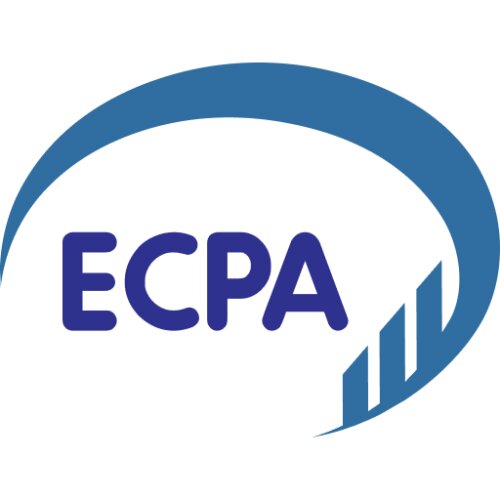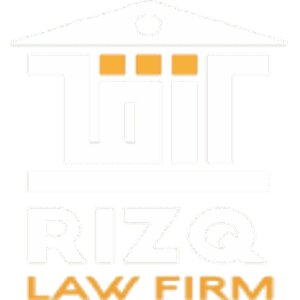Best Sanctions & Export Controls Lawyers in Heliopolis
Share your needs with us, get contacted by law firms.
Free. Takes 2 min.
List of the best lawyers in Heliopolis, Egypt
About Sanctions & Export Controls Law in Heliopolis, Egypt
Sanctions and export controls are legal regimes that regulate the cross-border movement of goods, technology, services and funds. In Egypt, including the Heliopolis district of Cairo, these rules are implemented at the national level but affect local businesses, banks and individuals. Egypt enforces measures required by United Nations Security Council resolutions and applies domestic rules through customs, licensing and banking controls. In practice this means exporters, importers, freight forwarders, banks and service providers in Heliopolis must comply with Egyptian regulations and be aware of international sanctions regimes that can reach Egyptian transactions - for example measures imposed by other states or regional bodies that have extraterritorial effects.
Why You May Need a Lawyer
Sanctions and export-control matters can be legally complex and carry serious commercial and criminal risks. You may need a lawyer in the following common situations:
- Your company exports goods, software or technology that could be classified as controlled or dual-use and you need licensing advice or product classification.
- A shipment is detained by Egyptian Customs or a foreign authority and you need to secure release, contest seizures or arrange mitigation steps.
- A counterparty, customer or bank is listed on a sanctions list or there are concerns about ownership, ultimate destination or intended end-use.
- Your bank or payment provider refuses a transaction citing sanctions risk and you want to pursue a lawful payment route or challenge the decision.
- You face an investigation or enforcement action from Egyptian authorities for alleged sanctions or export-control breaches and need representation to minimize penalties or criminal exposure.
- You need to design or review a sanctions and export-control compliance program, internal policies, training and record-keeping across operations in Heliopolis and beyond.
Local Laws Overview
Key aspects of the Egyptian legal framework and administrative practice relevant to sanctions and export controls include the following:
- United Nations obligations: Egypt is a UN member and implements Security Council measures through domestic action. UN sanctions are binding and typically implemented through administrative measures enforced by customs, security and other state bodies.
- Customs and export controls: Egyptian Customs enforces import and export controls, including requirements for permits, commodity classification, declarations and inspections. Certain goods - such as military equipment, arms-related components, certain chemicals, and some dual-use items - are subject to licensing or prohibition.
- Licensing and permits: Export of controlled items often requires prior authorization from relevant ministries or agencies. End-user and end-use certificates may be requested, and misleading documentation can lead to seizure or prosecution.
- Financial and banking measures: The Central Bank of Egypt and commercial banks enforce financial controls, including freezing orders or transaction restrictions in line with national or international measures. Banks perform sanctions screening and may decline transactions that present risk.
- Criminal and administrative sanctions: Noncompliance can result in administrative penalties, fines, seizure of goods, license suspension, and in serious cases criminal charges such as smuggling or facilitating prohibited transactions.
- Extraterritorial impact: Foreign sanctions regimes - for example from the United States, the European Union, or other jurisdictions - can have extraterritorial effects. Transactions using the US dollar, involving US persons or passing through foreign financial systems may trigger obligations under those regimes and lead banks to block or refuse payment.
- Sector-specific controls: Certain sectors such as telecommunications, aerospace, chemicals, and defense-related industries face heightened scrutiny and additional permitting or oversight requirements.
Frequently Asked Questions
What is the difference between sanctions and export controls?
Sanctions are measures that restrict dealings with specified countries, entities or persons for foreign policy and national security reasons. Export controls regulate the transfer of specific goods, technologies or services that could have military, proliferation or security applications. There is overlap - for example a sanctioned individual may also be prohibited from receiving controlled technology.
Do UN sanctions apply in Heliopolis?
Yes. UN Security Council measures are binding on Egypt and are implemented through national authorities. Residents and businesses in Heliopolis must comply with any UN sanctions that Egypt has enacted domestically.
Can foreign sanctions affect my business in Heliopolis?
Yes. Foreign sanctions can have extraterritorial impact, especially where transactions use foreign banks, foreign currency clearing systems, or involve foreign persons. Egyptian businesses often face practical effects when banks refuse to process payments that might touch a sanctioned jurisdiction.
Which local authorities enforce sanctions and export controls?
Enforcement commonly involves Egyptian Customs, relevant ministries for licensing, the Central Bank of Egypt for financial measures, and security or investigative authorities for enforcement actions. Multiple agencies can be involved depending on the nature of the alleged breach.
What types of goods typically require export licenses?
Military goods, weapons and components, certain chemicals and biological agents, some high-performance electronics, advanced software and technology with potential military use, and items listed as dual-use under export control lists typically require licenses or are restricted.
How should I check if a counterparty is sanctioned?
Perform sanctions screening using up-to-date lists from the relevant authorities - national lists, UN lists and, as relevant, foreign lists that may affect your transactions. Screen beneficial owners, parent companies and associated persons, not only the named counterparty. A lawyer can assist with proper due diligence procedures and record-keeping.
What should I do if Egyptian Customs detains my shipment?
Seek legal advice immediately. Preserve all documentation - invoices, contracts, licenses, transport documents, and communications. A lawyer can help engage the customs authority, prepare submissions, seek release or mitigation, and represent you if administrative or criminal proceedings follow.
What are typical penalties for noncompliance?
Penalties range from administrative fines and seizure of goods to revocation of permits, civil liability and in serious cases criminal prosecution. Penalties depend on the nature of the breach - intentional export of prohibited items or facilitation of sanctioned transactions can attract severe sanctions.
How can a local lawyer help with compliance programs?
A lawyer can assess your business risks, draft and implement written policies, establish screening and approval procedures, design training for staff, prepare internal manuals, and advise on record-retention. Legal counsel can also conduct compliance audits and recommend practical controls tailored to your operations in Heliopolis.
Should I voluntarily disclose a compliance breach to authorities?
Voluntary disclosure can be a mitigating factor but should be considered carefully with legal advice. A lawyer can evaluate the risks and benefits, prepare a disclosure that may reduce penalties, and negotiate with authorities where appropriate.
Additional Resources
The following governmental bodies and organizations are useful sources of information and enforcement in Egypt and internationally. Contact or consult them for authoritative guidance and lists:
- Egyptian Customs Authority
- Central Bank of Egypt
- Ministry of Trade and Industry
- Ministry of Foreign Affairs
- General Authority for Investment and Free Zones (GAFI)
- United Nations Security Council (sanctions resolutions)
- Relevant foreign sanctions authorities for extraterritorial regimes that may affect Egyptian trade - for example national or regional enforcement bodies in jurisdictions that issue widely applied sanctions
In addition, professional services firms, trade associations and local law firms with experience in export controls and sanctions in Cairo and Heliopolis are practical resources for compliance guidance and legal representation.
Next Steps
If you need legal assistance in Heliopolis regarding sanctions or export controls, follow these practical steps:
- Collect all relevant documents: contracts, invoices, export/import declarations, licenses, transport and shipping paperwork, correspondence and bank information. This helps any lawyer evaluate your situation quickly.
- Identify the specific risk: Are you dealing with a restricted good, a sanctioned party, a detained shipment, or a blocked payment? Clear identification of the issue speeds up advice.
- Seek a specialist lawyer: Choose counsel with experience in sanctions, export controls, customs law and banking regulation. Local knowledge of Egyptian procedures and contacts with authorities is valuable.
- Conduct a compliance review: If you are a business, arrange a compliance audit and implement screening, licensing checks and internal controls to reduce future risk.
- Consider mitigation and disclosure: With counsel, decide whether voluntary disclosure or remedial action with authorities is appropriate to limit penalties.
- Train staff and document procedures: Regular training for sales, logistics, procurement and finance teams and clear written policies help prevent accidental noncompliance.
Legal matters in this field are fact-sensitive. Early consultation with qualified local counsel in Heliopolis will help you understand your obligations, protect your operations and respond effectively to any enforcement issues.
Lawzana helps you find the best lawyers and law firms in Heliopolis through a curated and pre-screened list of qualified legal professionals. Our platform offers rankings and detailed profiles of attorneys and law firms, allowing you to compare based on practice areas, including Sanctions & Export Controls, experience, and client feedback.
Each profile includes a description of the firm's areas of practice, client reviews, team members and partners, year of establishment, spoken languages, office locations, contact information, social media presence, and any published articles or resources. Most firms on our platform speak English and are experienced in both local and international legal matters.
Get a quote from top-rated law firms in Heliopolis, Egypt — quickly, securely, and without unnecessary hassle.
Disclaimer:
The information provided on this page is for general informational purposes only and does not constitute legal advice. While we strive to ensure the accuracy and relevance of the content, legal information may change over time, and interpretations of the law can vary. You should always consult with a qualified legal professional for advice specific to your situation.
We disclaim all liability for actions taken or not taken based on the content of this page. If you believe any information is incorrect or outdated, please contact us, and we will review and update it where appropriate.












